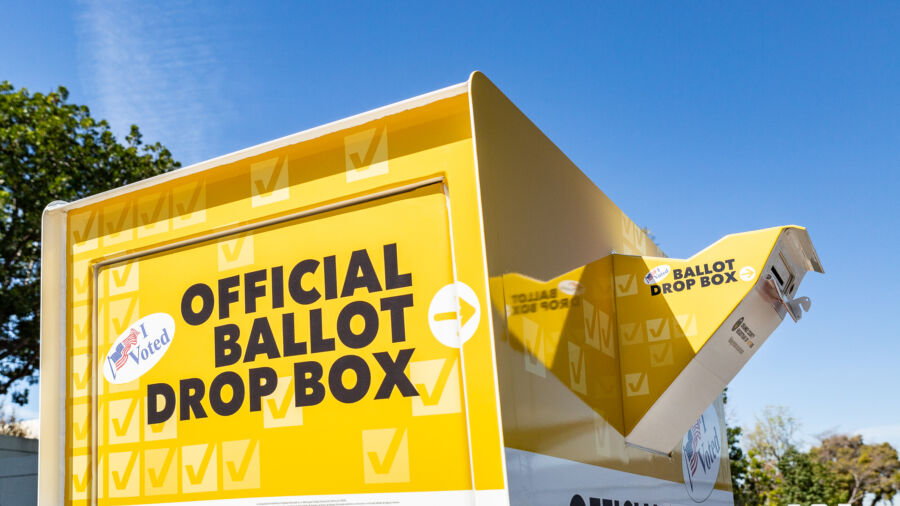A federal appeals court on Thursday upheld a law that, among other modifications of election rules, added security measures on the use of drop boxes and put restrictions on voting by mail in the Sunshine State.
On Thursday, the Court of Appeals for the 11th Circuit reversed a lower court’s ruling that struck down a law passed by Florida’s Republican-majority legislature in 2021, siding mostly with Florida’s GOP lawmakers in a legal battle that lasted for two years.
That law (pdf) amended Florida’s election administration rules when it added identification requirements for voting by mail (including name, address, and date of birth); added monitoring requirements for drop boxes by election administrators; limited the locations on the use of ballot drop boxes; added identification requirements for voter registration updates; added requirements for third-party voter registration organizations; prohibited use of private funds for election-related expenses.
It also made it illegal for anyone to “solicit any elector in an effort to provide assistance to vote” within 150 of the polling place, drop box location, or early voting site.
Gov. Ron DeSantis signed the bill into law on May 6, 2021, touting it as an action that would “increase transparency and strengthen the security” of Florida’s elections. League of Woman Voters of Florida, a political advocacy organization, sued Florida state officials on the same day, seeking a court injunction on the law’s enforcement.
In 2022, District Judge Mark Walker, an Obama appointee, ruled in favor of the League of Women Voters. In his ruling (pdf), Walker wrote that the lawmakers showed “intent to discriminate against Black voters” and struck down most of the provisions in the law. Walker is also presiding over the Disney v. DeSantis lawsuit.
In his ruling, Walker said that “Florida has a history of maintaining its voter rolls in a discriminatory manner” and that the law is evidently “the stark results of a political system that, for well over a century, has overrepresented White Floridians and underrepresented Black” residents.”
Walker then ordered that Florida officials, in a ten-year period upon his ruling, must seek court approval for enacting any laws regarding ballot drop boxes, voter solicitation at the polls, and regulation of third-party voter registration organizations.
The appeals court disagreed.
“We hold that the findings of intentional racial discrimination rest on both legal errors and clearly erroneous findings of fact,” reads the appeal court’s 2-1 ruling (pdf) filed on Thursday.
The appeals court reasoned that Walker made a mistake in reasoning that “a racist past is evidence of current intent” and that past case precedents do not provide “an unlimited look-back to past discrimination.”
“Under our precedent, this history cannot support a finding of discriminatory intent in this case. Florida’s more recent history does not support a finding of discriminatory intent,” wrote Pryor.
Chief Judge William Pryor, a Bush appointee, voted in favor and delivered the majority opinion. Judge Britt Grant, a Trump appointee, voted in favor. Judge Pryor, an Obama appointee, dissented.
The appeals court reversed the lower court’s judgment that provisions of the bill regarding drop-box, solicitation, and registration-delivery provisions are unconstitutional. It also reversed the lower court’s ruling that required the state to seek preclearance for amending election laws. The court affirmed, in part, the lower court’s ruling that the solicitation requirement imposed by the law is “unconstitutionally vague.” It then returned the case to the lower court “for further proceedings consistent with this opinion.”
In a Thursday statement posted on Twitter, the League of Women Voters of Florida wrote that it is “disappointed” by the appeal court’s ruling.
Jeffrey Clark, former acting assistant attorney general for the Civil Division under the Trump administration, hailed the appeal court’s ruling as a “big victory … for election integrity in Florida” in a Thursday statement published on Twitter.
From The Epoch Times

